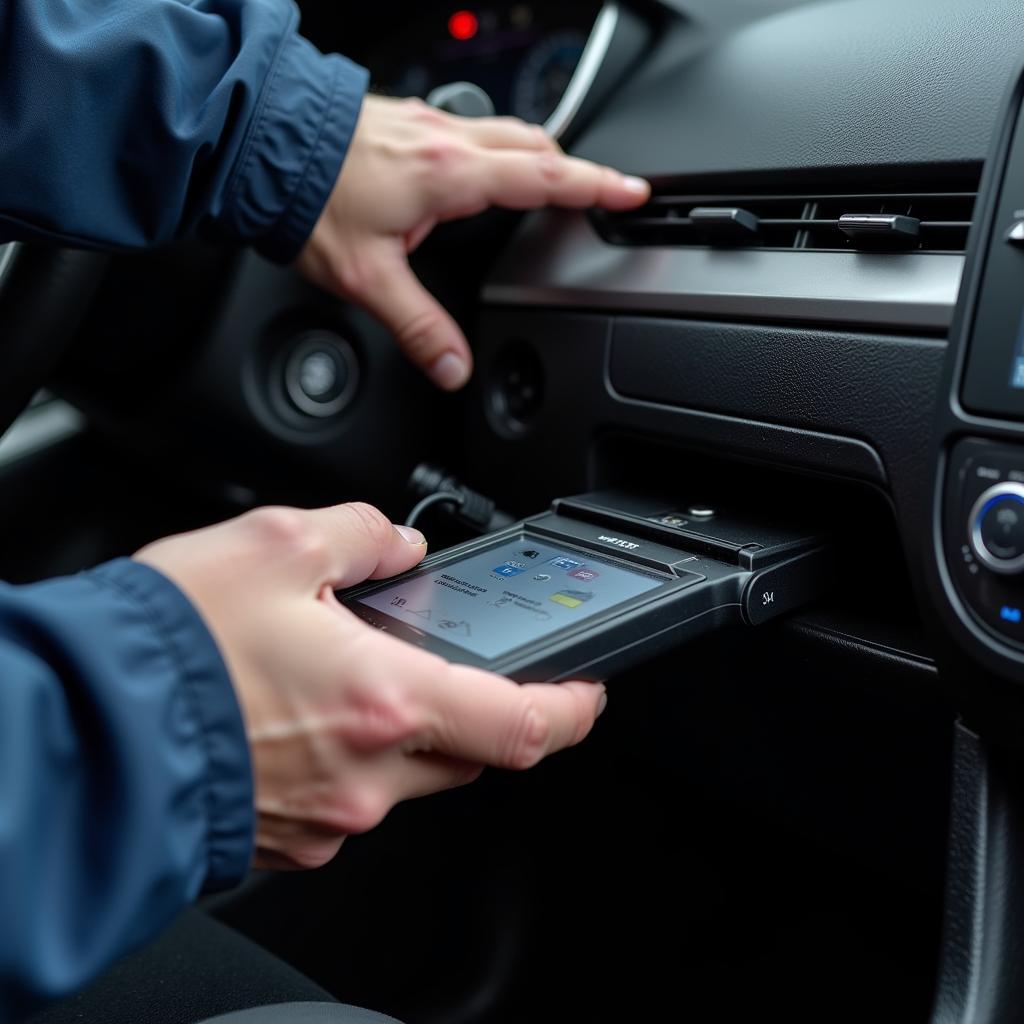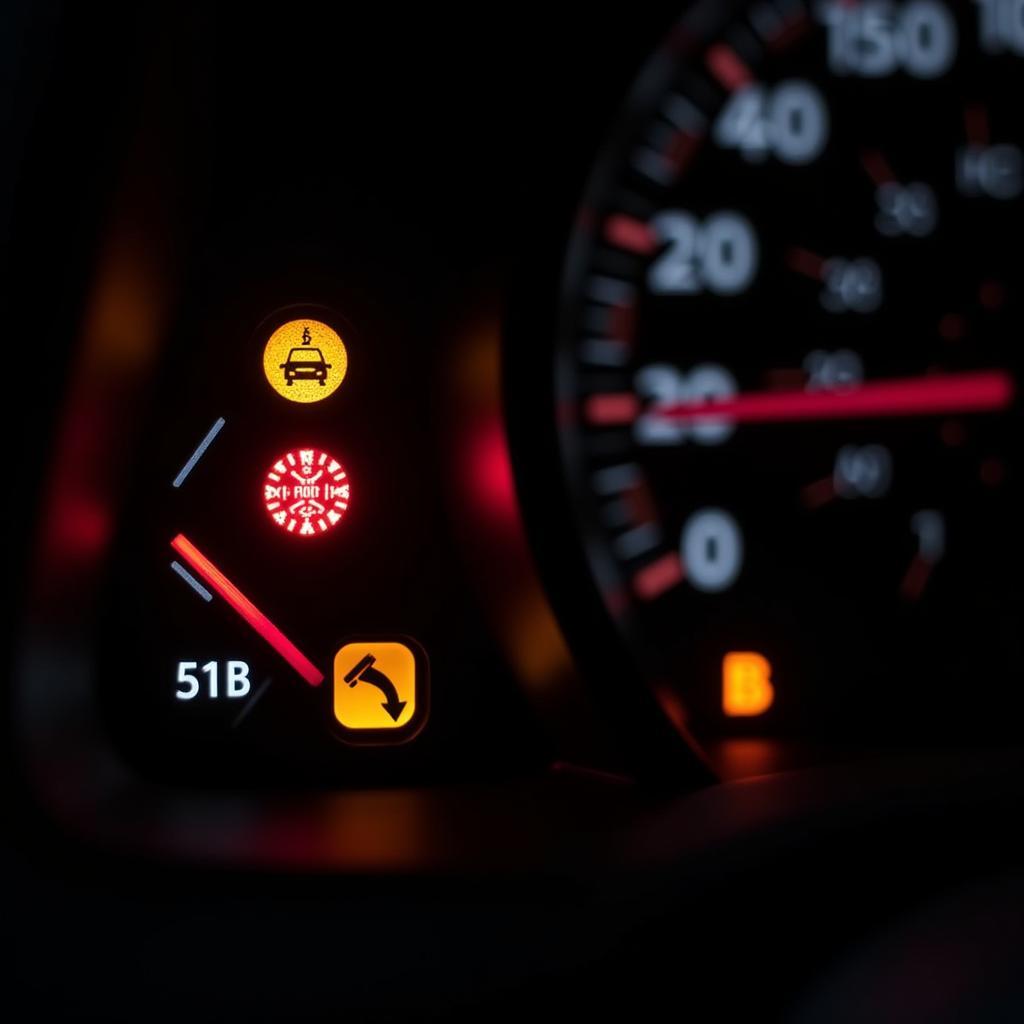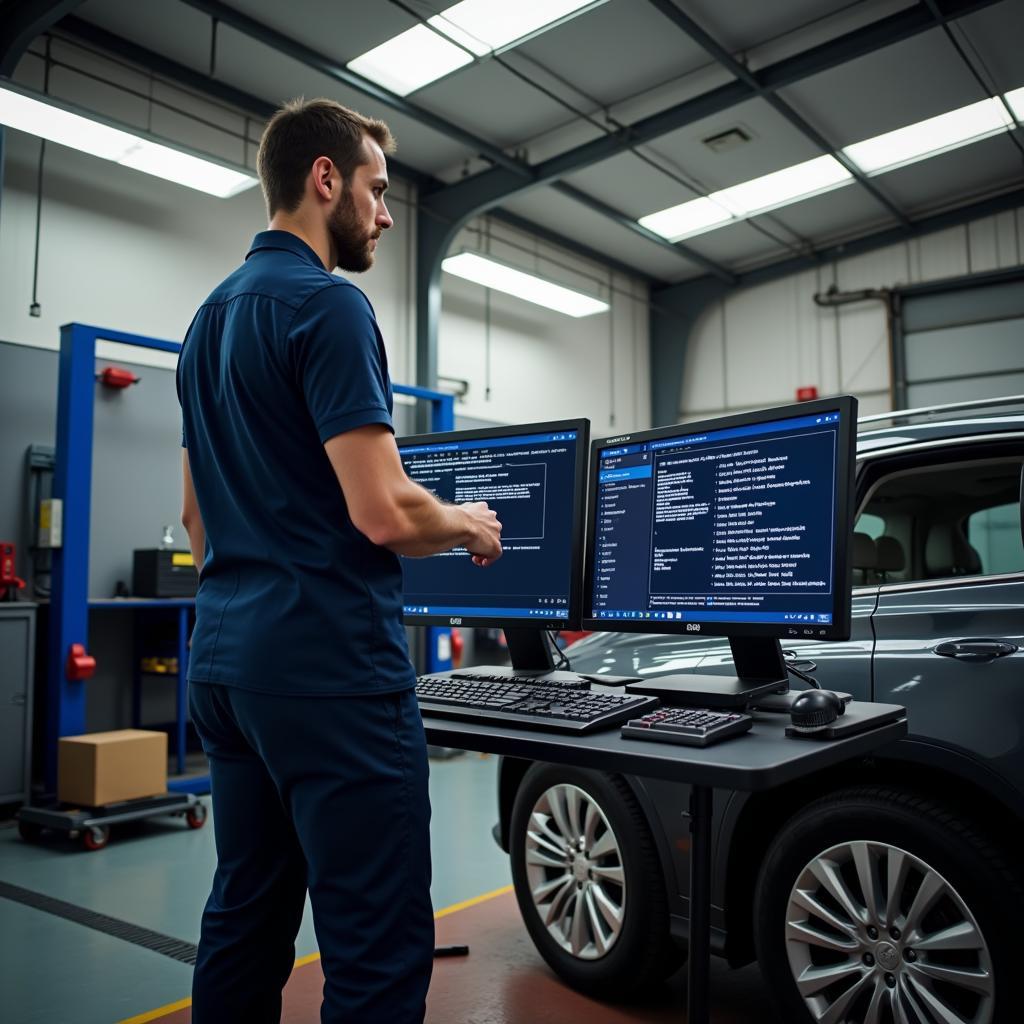A Diagnostic Inspection Car scan is a crucial part of vehicle maintenance and repair. It involves using advanced technology to delve into your car’s computer system, retrieving valuable data about its health and performance. This data translates into actionable insights for mechanics, allowing them to accurately diagnose issues, understand the root cause of problems, and provide effective solutions.
Unveiling the Power of a Diagnostic Inspection Car Scan
 Mechanic using a diagnostic scan tool connected to a car’s OBD-II port
Mechanic using a diagnostic scan tool connected to a car’s OBD-II port
Gone are the days of relying solely on a mechanic’s intuition and experience. Today, a diagnostic inspection car scan acts as a window into your vehicle’s internal workings, offering a wealth of information that can pinpoint existing problems and even predict potential issues before they escalate.
What Does a Diagnostic Inspection Car Cover?
 Car dashboard illuminated with various warning lights
Car dashboard illuminated with various warning lights
A comprehensive diagnostic inspection car scan encompasses a wide range of systems and components within your vehicle. Here are some key areas it covers:
- Engine Control Unit (ECU): This system manages your engine’s performance, fuel efficiency, and emissions. The scan can detect issues related to sensors, fuel injection, ignition timing, and more.
- Transmission: A diagnostic scan can identify problems with your car’s transmission system, such as slipping gears, rough shifting, and transmission fluid issues.
- Brakes: The scan can assess the health of your Anti-lock Braking System (ABS), Electronic Stability Control (ESC), and other braking components.
- Airbags: Diagnostic tools can check the status of your airbag system, ensuring it’s functioning correctly in case of an accident.
- Emissions System: The scan evaluates your car’s emissions control system, detecting issues that could lead to increased emissions.
Benefits of Regular Diagnostic Inspection Car Scans
 Mechanic analyzing data from a diagnostic scan on a computer screen in a repair shop
Mechanic analyzing data from a diagnostic scan on a computer screen in a repair shop
Regular diagnostic inspection car scans are essential for maintaining the health and longevity of your vehicle. They provide numerous benefits, including:
- Early Problem Detection: Identifying issues early on prevents them from escalating into major, costly repairs.
- Accurate Diagnostics: By providing concrete data, the scan eliminates guesswork and ensures that mechanics address the actual problem.
- Increased Safety: Addressing issues related to brakes, airbags, and other safety systems improves the overall safety of your vehicle.
- Improved Fuel Efficiency: Detecting and resolving engine and emissions-related problems can enhance fuel economy.
- Increased Resale Value: A well-maintained vehicle with a history of regular diagnostic scans is more appealing to potential buyers.
When Should You Get a Diagnostic Inspection Car Scan?
- Illuminated Check Engine Light: This is the most obvious sign that a diagnostic scan is needed.
- Unusual Noises or Performance Issues: Any unusual sounds, vibrations, or performance problems should prompt a scan.
- Before Buying a Used Car: A diagnostic inspection is crucial to assess the car’s condition and identify potential hidden problems.
- Regular Maintenance: Consider scheduling a diagnostic scan as part of your routine car maintenance, even if there are no apparent issues.
Conclusion
A diagnostic inspection car scan is an indispensable tool in modern car maintenance and repair. By providing a detailed glimpse into your vehicle’s health, it empowers mechanics to make accurate diagnoses and deliver effective solutions. Prioritizing regular diagnostic scans ensures that your car remains in top condition, saving you time, money, and potential headaches down the road.
For expert diagnostic inspection car services and reliable advice, contact us on WhatsApp at +1(641)206-8880 or email us at [email protected]. Our dedicated team is available 24/7 to assist you with all your car diagnostic needs.

Leave a Reply